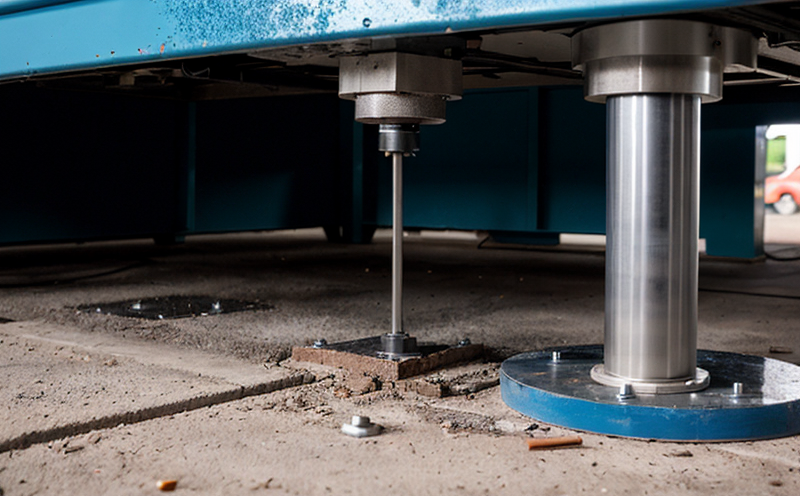ISO 25178 Surface Topography Distortion Measurement
The ISO 25178 standard provides a robust framework for measuring surface topography distortions in additive manufactured (AM) components. This method is critical as it ensures the dimensional accuracy and integrity of parts, which are essential for meeting stringent performance requirements across various sectors including aerospace, automotive, medical, and defense.
Surface topography distortion can significantly impact the mechanical properties and functionality of AM parts. For instance, in the aerospace sector, distortions in turbine blades or engine components can lead to safety hazards and increased maintenance costs. In contrast, in the medical industry, inaccuracies could compromise the effectiveness of prosthetics or implants. Understanding how these distortions are measured and controlled is vital for ensuring compliance with international standards like ISO 25178.
The testing process involves several key steps: specimen preparation, measurement using laser interferometry, data analysis, and final report generation. Specimens must be carefully prepared to ensure that any detected distortions can be attributed accurately to the additive manufacturing process rather than external factors such as handling or storage conditions.
Laser interferometric systems are typically used for this type of testing due to their high precision and capability to capture even minor surface topography changes. These instruments project a laser beam onto the surface of the specimen, which then reflects off the surface back into the instrument. The interference pattern produced from these reflections is analyzed using sophisticated software to determine the exact nature and extent of any distortion.
The results are reported according to ISO 25178 guidelines, providing detailed metrics on the level of distortions present within specified tolerances for each component type. This information allows manufacturers to make informed decisions about process adjustments needed to achieve desired outcomes in terms of part accuracy and performance capabilities.
| Key Parameters | Description |
|---|---|
| Interferometric Range | The range over which the laser can measure surface topography accurately. |
| Data Points Per Inch (DPI) | Resolution of the measurement system expressed in terms of points measured per inch. |
Why It Matters
The importance of distortion control cannot be overstated when dealing with additive manufacturing processes. Even small deviations from designed dimensions can have significant implications for product performance and safety. By adhering to ISO 25178 standards, manufacturers can ensure that their products meet the highest quality benchmarks set by industry leaders.
- Enhanced Safety: Ensures that components used in critical applications such as aircraft engines or medical implants do not compromise user safety due to dimensional inaccuracies.
- Better Performance: Improves overall product functionality by minimizing discrepancies between manufactured parts and design specifications.
- Economic Efficiency: Reduces waste by allowing for more precise manufacturing, thus lowering production costs associated with rework or scrap.
These benefits translate into better customer satisfaction and increased market competitiveness. Additionally, compliance with these standards helps companies navigate regulatory requirements more effectively while building trust among stakeholders.
Industry Applications
- Aerospace: Ensuring the integrity of engine components like turbine blades.
- Automotive: Verifying the accuracy of complex geometries in prototypes or production parts.
- Medical: Guaranteeing precise dimensions in surgical instruments and implants.
- Defense: Maintaining high standards for critical parts used in military equipment.
| Applications | Description |
|---|---|
| Aerospace | Verifying the structural integrity of parts like turbine blades and engine components. |
| Automotive | Evaluating the accuracy and repeatability of complex geometries in prototypes or production runs. |
| Medical | Ensuring that prosthetics, implants, and other medical devices meet strict dimensional tolerances. |
| Defense | Verifying the reliability and performance of critical components used in military equipment. |
Eurolab Advantages
Eurolab offers unparalleled expertise in additive manufacturing testing, leveraging cutting-edge technology to deliver accurate and reliable results. Our team of professionals ensures that every test follows the strictest protocols laid out by ISO 25178, providing clients with confidence in their products' quality.
- State-of-the-Art Facilities: Equipped with advanced laser interferometric systems tailored specifically for measuring surface topography distortions.
- Experienced Staff: Our team consists of highly trained engineers and technicians who possess extensive knowledge in additive manufacturing processes and testing methodologies.
- Comprehensive Reporting: Detailed reports are provided alongside clear interpretations, helping clients understand the implications of measurement results on their products' performance.
We also offer training sessions for quality managers, compliance officers, R&D engineers, and procurement specialists to ensure they fully comprehend the importance of this testing method in maintaining product integrity.





